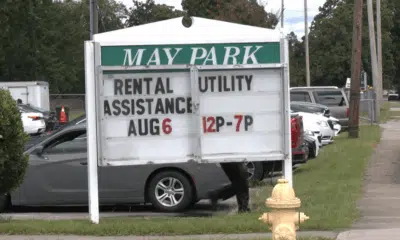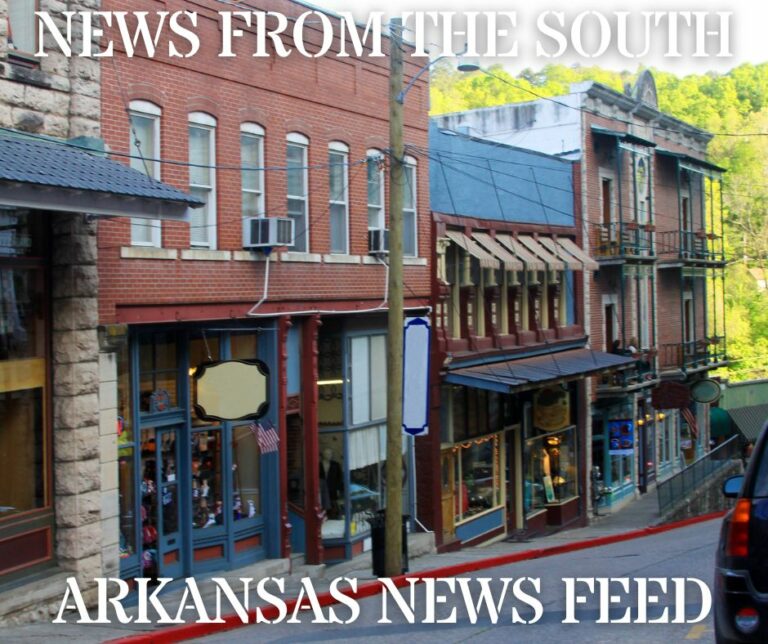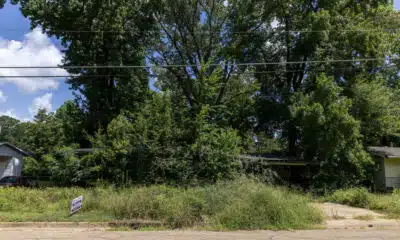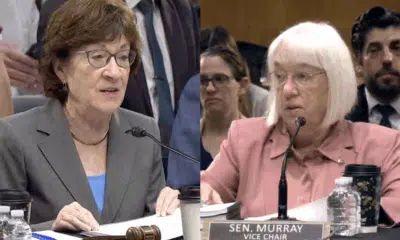News from the South - North Carolina News Feed
Corn farmers across NC hope for better harvest in 2025
Corn farmers on food stamps and taking second jobs. Equipment not being repaired. Debts going unpaid.
That’s the reality for many North Carolina corn growers this spring.
Last year was the worst season for the crop in state history, according to Ronnie Heiniger, a corn specialist at N.C. State. Drought wiped out acre after acre in eastern North Carolina last summer. Hurricane Helene devastated any crops left in the mountains.
Normally a $750 million dollar business, corn yielded only $250 million in 2024.
[Subscribe for FREE to Carolina Public Press’ alerts and weekend roundup newsletters]
The economic cost to farmers — and their communities — couldn’t be more serious. And with a moderate drought stretching into the early days of this planting season, some are worried about more bad luck to come.
Corn is particularly sensitive to drought due to the crop’s very short window of pollination: This critical period of growth is just a few days long. In North Carolina, that vulnerable timeframe usually happens in June. If no rain falls during those days, corn will simply not continue to grow and yields will sharply decline.
“It was just about as bad as it could get (last season),” Heiniger recalled. “There’s no recovering from 60 days without rainfall. The mood among these farmers is very depressed. Some don’t know where to turn.”
But the N.C. House of Representatives is trying to help, hoping that the money allocated by the Corn Farmers Recovery Act, or HB 296, will be enough to keep the industry going.
The bill — which has yet to make it past the Appropriations Committee, the Rules Committee, the House and Senate — would transfer nearly $90 million from the State Emergency Response and Disaster Relief Fund to the Department of Agriculture and Consumer Services. The money would go toward the creation of a 2024 Agricultural Disaster Corn Crop Loss Program, which corn farmers could apply to receive relief funds.
“To be honest, I don’t think most farmers thought the state was going to pay much attention to them,” Heiniger admitted. “This comes as a complete surprise.”
Corn farmers ‘at risk’
Corn is a summer staple on tables across North Carolina, but the crop also is necessary for feeding livestock and producing ethanol, which has a variety of uses. Sampson and Duplin counties, where pigs outnumber people 38 to 1, are home to the largest hog industries in the country. A shortage of feed could make that billion dollar business less profitable, too.
“I think a whole lot of farmers will be applying for this funding if it passes,” Zach Parker, an extension agent in Sampson County, told Carolina Public Press. “I don’t think devastation is understatement in the slightest. As for this summer, the only certainty is uncertainty. But I don’t think the corn industry is going anywhere. We have animals to feed.”
The bill would have the greatest economic impact in eastern North Carolina — the region with the largest, most valuable corn farms.

“In Wilson County, corn farmers have really been at risk,” said state Rep. Dante Pittman, a Democrat who serves Wilson and Nash counties and co-sponsored the Corn Farmers Recovery Act. “We saw an almost $4 million drop in income from corn in Wilson alone.
“The thing about this industry is that we don’t know what this year’s weather is going to bring. Anything we can do to prevent that loss from being devastating is necessary.”
Desperation down on the farm
With the cost of farming supplies high and crop commodity prices low, farmers are growing desperate.
“This bill will not only help farmers, but the farm communities that survive on selling fertilizer, chemicals, seeds, tractors and farm labor,” Heiniger explained. “It will help these rural communities where farmers are turning to food aid for their kids at school.”
The bill is geared toward those who grow corn, but since most farmers harvest a diverse set of crops, the money would in turn support production of soybeans, cotton, sweet potatoes and other North Carolina staples, according to Mike Yoder, an associate director of the College of Agriculture at N.C. State.
But some, like Rhonda Garrison, have concerns about the bill. Like, how will the relief funds be allocated? That’s something Garrison, director of the Corn Growers Association of North Carolina, wants to know.
“The bill is pretty ambiguous in terms of the formula for distributing the money,” Garrison contends. “I guess farmers will just have to apply for it and see what happens.”
But she doesn’t think the money will come too late to be useful.
“There were some farmers — overleveraged farmers who were already on the edge — that were done in completely by 2024,” Garrison said. “But not the majority. The potential money from this bill will likely go toward paying down debt.”
As planting season approaches, North Carolina corn farmers face difficult decisions about the future. There is a possibility the state will face some kind of natural disaster in 2025, whether it be hurricane, drought or continued fires.
“Us farmers rejoice in suffering because it produces character,” Heiniger said. “That’s what these farmers are trying to do: hold onto their character so they can get some hope and keep on going.”
This article first appeared on Carolina Public Press and is republished here under a Creative Commons license.
The post Corn farmers across NC hope for better harvest in 2025 appeared first on carolinapublicpress.org
News from the South - North Carolina News Feed
Two people unaccounted for in Spring Lake after flash flooding
SUMMARY: Two people are missing in Spring Lake after severe flash flooding. Heavy rain has caused significant flooding, especially near East Nash Street and Highway 581 around US64, resulting in road closures. Emergency crews from Nash County, including sheriffs, state troopers, and swiftwater rescue teams, are actively searching for the missing individuals. One officer swept away earlier was safely located. Floodwaters remain dangerously high, prompting warnings for residents to exercise caution. Reporters on scene emphasize the seriousness of the situation and the ongoing heavy rainfall, promising live updates as rescue efforts continue.
WRAL reporter Heidi Kirk was live from the scene as crews continued to search for the two missing people.
News from the South - North Carolina News Feed
Ideas for helping NC child care industry are solidifying, but a top suggestion faces headwinds
SUMMARY: North Carolina’s Child Care Task Force, led by Gov. Josh Stein, Lt. Gov. Rachel Hunt, and Sen. Jim Burgin, is addressing child care affordability, workforce pay, and financial stability, especially in rural areas. Child care providers struggle financially due to low subsidies and high costs, with infant care averaging $11,720 annually statewide. Owners like Halee Hartley and Annette Anderson-Samuels work multiple jobs to sustain their centers. The task force prioritizes raising minimum subsidy reimbursement rates to support providers equitably across counties. Discussions include establishing a child care endowment fund, leveraging philanthropy to supplement funding amid uncertain state and federal budgets.
The post Ideas for helping NC child care industry are solidifying, but a top suggestion faces headwinds appeared first on ncnewsline.com
News from the South - North Carolina News Feed
Court docs show Harris Lake boating suspect had prior legal troubles
SUMMARY: Court documents reveal Quinton Kite, charged with causing a deadly boating accident at Harris Lake that killed a 10-year-old girl and critically injured a woman, had prior legal troubles. Kite was out on a $15,000 bond from a December 2023 felony hit-and-run charge involving Alex Meyers, who was seriously injured but survived. Dashcam and security footage showed Kite’s damaged truck after leaving the crash scene. Meyers expressed frustration that earlier legal action might have prevented the tragedy. Additionally, court records from New Mexico show Kite pleaded no contest to a 2009 DUI charge, completed probation, and attended DWI school.
That includes arrests in 2009 and pending charges from a hit-and-run in 2023 that injured a Vass resident.
https://abc11.com/post/quinten-kight-court-documents-reveal-prior-legal-troubles-man-charged-harris-lake-boating-tragedy/17435804/
Download: https://abc11.com/apps/
Like us on Facebook: https://www.facebook.com/ABC11/
Instagram: https://www.instagram.com/abc11_wtvd/
Threads: https://www.threads.net/@abc11_wtvd
TIKTOK: https://www.tiktok.com/@abc11_eyewitnessnews
X: https://x.com/ABC11_WTVD
-
News from the South - Texas News Feed6 days ago
Rural Texas uses THC for health and economy
-
Mississippi Today2 days ago
After 30 years in prison, Mississippi woman dies from cancer she says was preventable
-
News from the South - Alabama News Feed7 days ago
Decision to unfreeze migrant education money comes too late for some kids
-
News from the South - Louisiana News Feed7 days ago
‘Half-baked’ USDA relocation irritates members of both parties on Senate Ag panel
-
News from the South - Georgia News Feed4 days ago
Woman charged after boy in state’s custody dies in hot car
-
Mississippi Today7 days ago
They own the house. Why won’t they cut the grass?
-
News from the South - Arkansas News Feed6 days ago
Trump’s big proposed cuts to health and education spending rebuffed by US Senate panel
-
News from the South - Georgia News Feed7 days ago
Bookman: Burt Jones’ pledge to eliminate Georgia’s income tax is wrong-headed









































